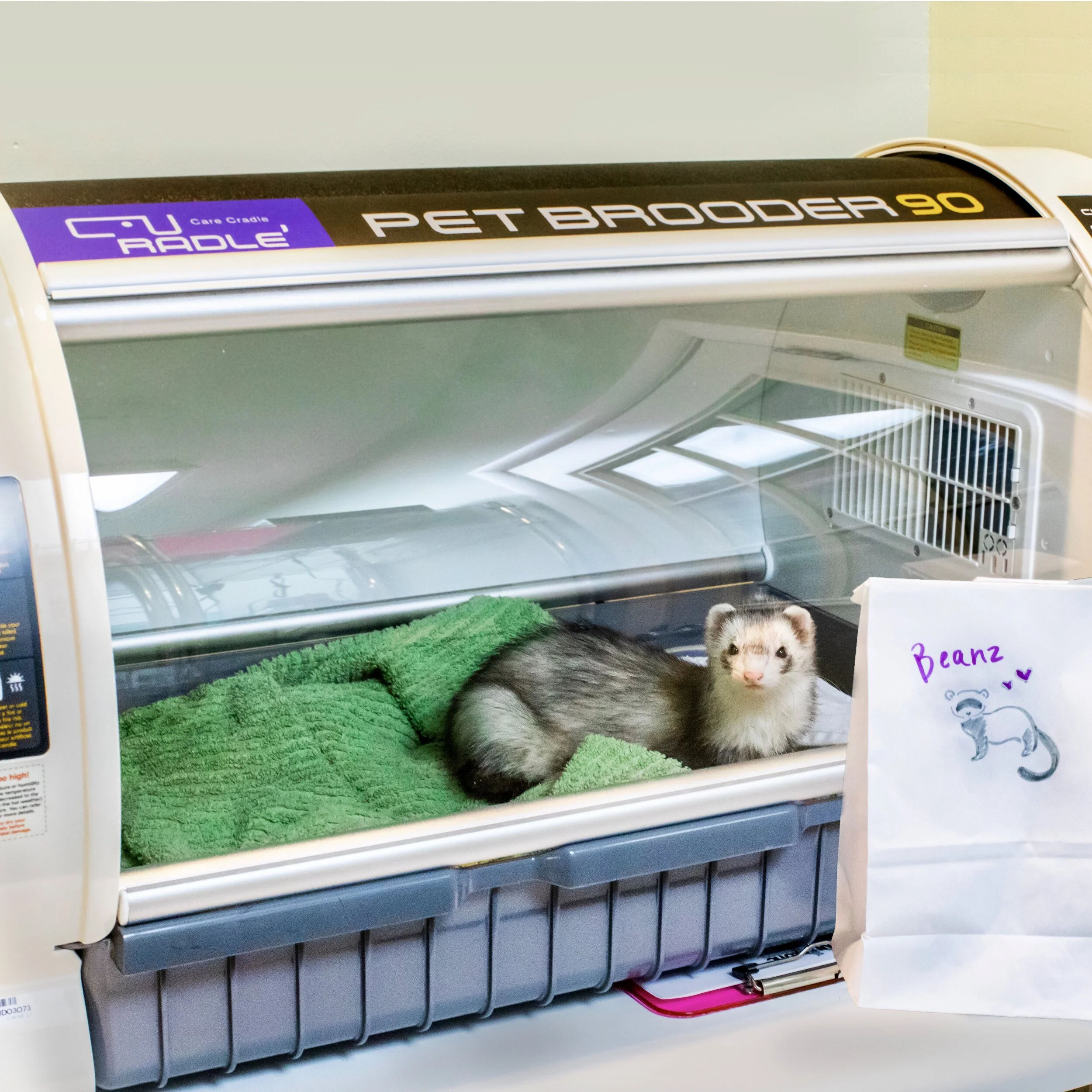Rabbits and rodents are prey animals, which means it is natural for them to hide signs of illness from even the most observant owner. Therefore, obvious signs of illness in your pet are often signs of a serious medical problem. Ferrets and other carnivores don't hide signs as well as rabbits and rodents; however signs of illness should be evaluated carefully.
These conditions are generally considered emergencies for which emergency medical care should not be delayed:
Severe lethargy, pet minimally responsive to stimulation
Uncontrolled bleeding
Fractures with an open wound or bone protruding from the injury site
Difficult or labored breathing
Anorexia or significantly deceased appetite for more than 24 hours (less in a very young animal)
If your rabbit has stopped eating, click here!
Bloated abdomen, especially when combined with teeth grinding or other behavior suggesting abdominal pain
Rear leg paralysis
Severe trauma
Bite wound from predators such as dogs and cats
Inability to pass urine/straining to urinate, vocalizing while urinating or passing blood. These can be signs of urinary stones, and if a blockage occurs and your pet is unable to urinate, it is a medical emergency.
Emergency First Aid while waiting for help:
Pet cold to touch: Body temperature below 100 degrees on a rectal thermometer: gently warm with heating pad on low, or warm water bottles. Monitor carefully to prevent overheating.
Weak, anorexic pet: Hand feed rabbits and rodents strained vegetable baby food with an eyedropper or syringe in small frequent meals. Feed frequently until you can get the pet into the veterinarian. Baby food contains calories and water, so additional water by mouth is not necessary.
Bleeding pet: Control bleeding with direct pressure (or pinching) over the source of the blood.
Paralysis: Absolutely minimize handling, confine to a pet carrier for transport to the veterinarian as soon as possible.
NOTE ON FERRETS: Certain disease conditions in ferrets typically produce low blood sugar. These ferrets appear quiet to severely depressed, or may appear to be dragging the rear limbs. Give these pets small amounts of pancake or karo syrup by mouth first, and then follow up with plain meat baby food. Hand feed ferrets or other carnivores strained chicken or turkey baby food with an eyedropper or syringe in small frequent meals.
Quick tips
The following images show how to set up a hospital cage at home, how to hand feed drops of sugar water, and other tips.
To hand feed an anorexic rabbit, wrap the rabbit in a secure towel “burrito.” Stabilize the head with one hand and gently introduce the syringe or eyedropper into the side of the mouth with the other hand. Feed slowly, allowing time for your pet to swallow.
See our hand feeding video here.
Ferrets can simply be held or scruffed when being hand fed. They can be fed canned cat food or strained baby turkey or chicken. See our hand feeding video here.


